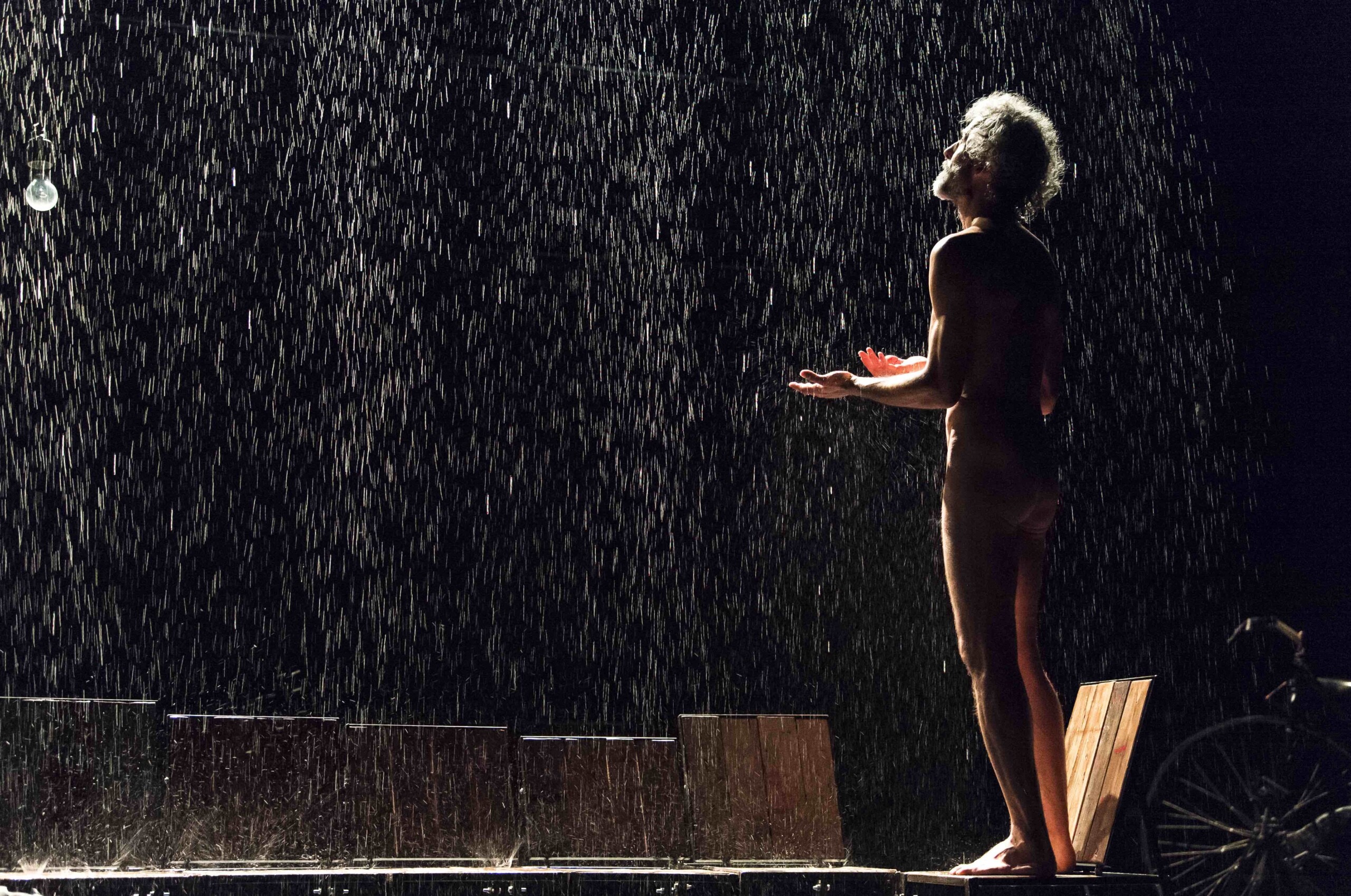He is a very human Christ, a “poor Christ”, the man who, in a vast domestic scene cluttered with some objects, raves, bestows pills of wisdom, doubts himself, makes proclamations, rails, laughs at himself, gets lost in his fantasies, he has moments of vanity, and in the meantime he rides on a bicycle with a huge wheel repeating the evangelical Beatitudes. We see him, at the beginning, kneeling in prayer in front of a shroud with the reproduction of the “Dead Christ” by Mantegna. Then sitting on a toilet that stands in the center, used and later destroyed with a stick. And again, more and more confused and frightened, amused and mocking, accuse blows and throw them in the air. He also speaks to a group of twelve chairs – to symbolize the Apostles – which he moves and arranges continuously until they are arranged in a row, ultimately forming an iconic and original Last Supper under a purifying rain that will also be dyed red like the blood flowed from the Redeemer on the cross. These are some of the many sequences of “Kristo – Pictures of doubtful wisdom” (national premiere at the MilanOltre festival), a show of powerful vision that Roberto Zappalà, with the means of dance theater, with the imagination of those who love to explore the inner transits of humanity, he imagined to talk about the anxieties of today’s man. And surprisingly, it displaces our gaze by substituting pure dance in favor of an almost exclusively theatrical staging entrusted to a single interpreter, the dancer / actor Massimo Trombettain a masterful test of great physical and expressive resistance.
To crowd the mind and the schizophrenia of his actions are a procession of women, now dressed as nuns with red gloves and whips lashed to the ground; now motionless, entirely covered in long burqa-like uniforms; now in the gaudy clothes and wigs of prostitutes who observe him while sitting, or look after him, dust the environment, clean the feverish body and then dress it elegantly, whereas before they had shaped it on a mannequin like a crucifix. Several times he will stretch out his arms outstretched and his head down, unknowingly identifying himself with Christ, then pouring out his daily Ten Commandments as he moves from chair to chair writhing.
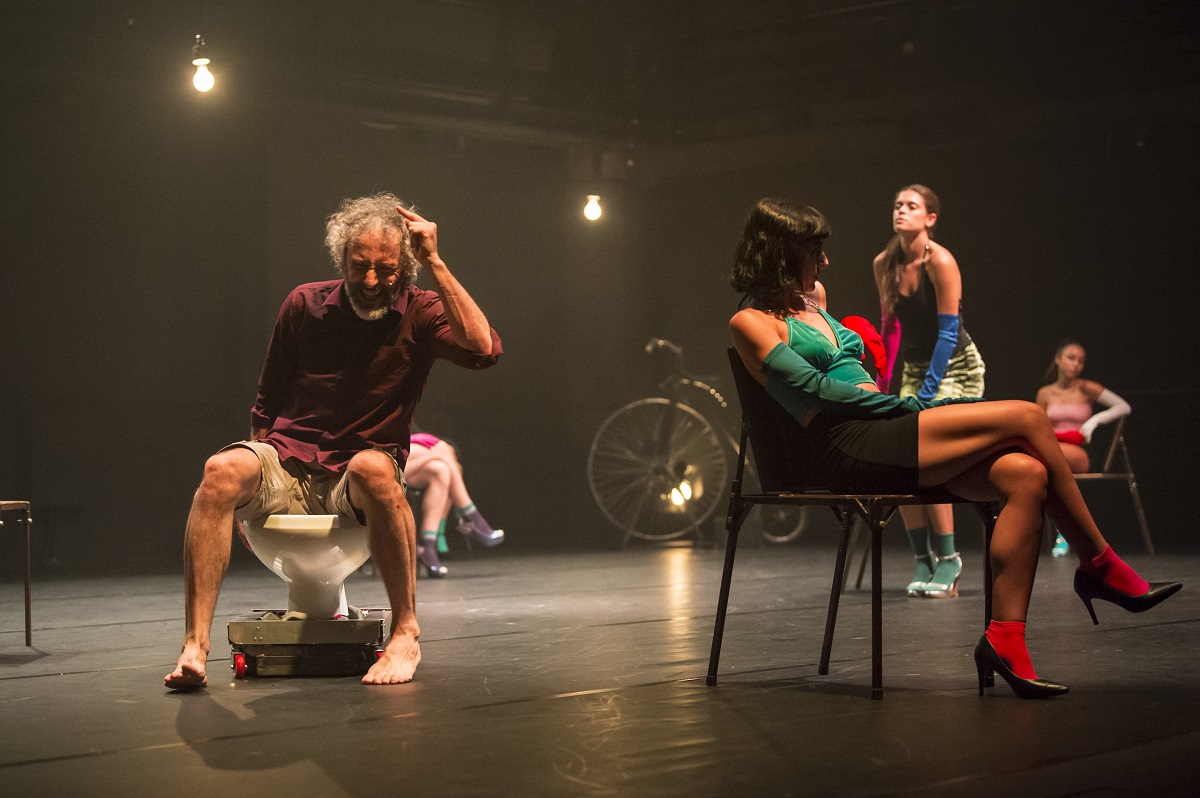
The dance is all in the body moved and inhabited by the many words expressed in the vortex of his lucid delirium, in the rhythm aroused by them and by the music, ranging from Haydn to Rossini, from Brahms to Vivaldi to Scott Walker, to the original ones by Vittorio Auteri and Simone Spampinato. They are important words, of sense and nonsense, that question and disconcert him / us. They are thoughts, quotes, interviews, phrases, aphorisms, verses, collected by Nello Calabrò, Zappalà’s faithful playwright, and taken from the most disparate characters: Kapuscinski, Kundera, Sciascia, Quino, Ravasi, Kurt Vonnegut, Paolo Poli, Jean Luc Godard, and many others.
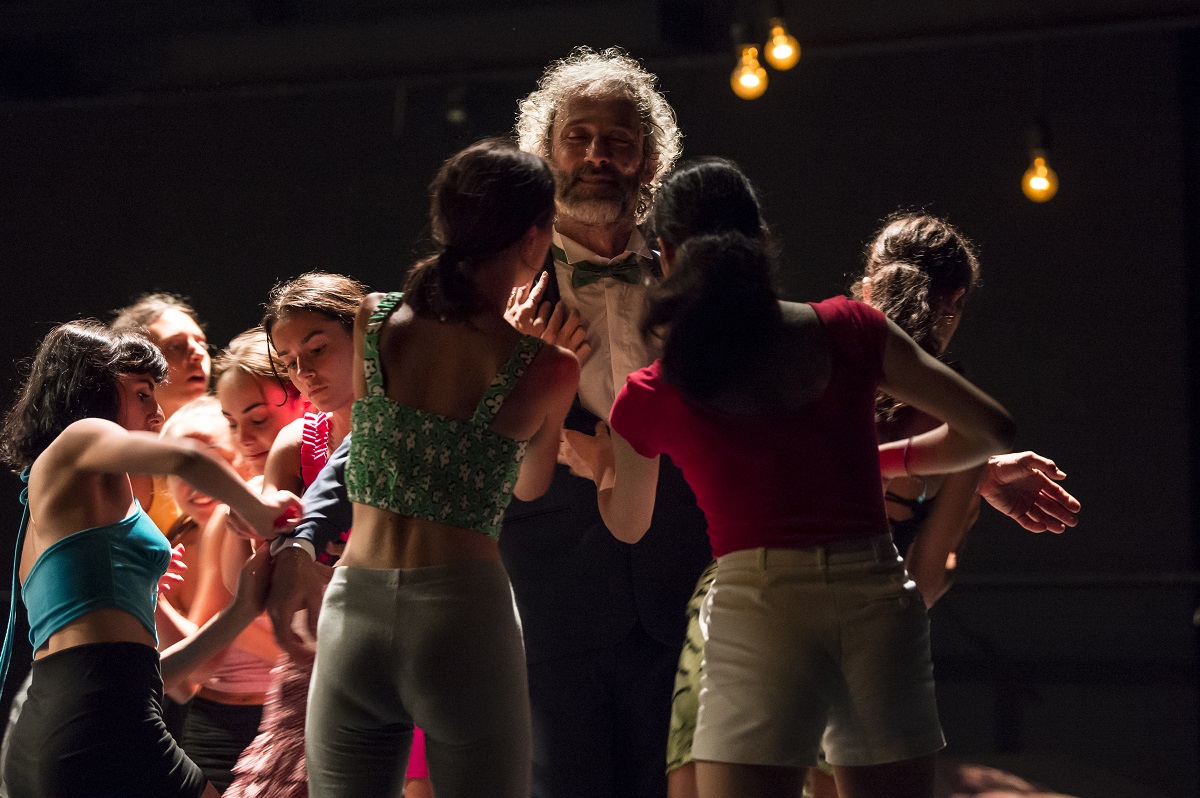
Spacing and dancing from one object to another he repeats a Pater noster by Hemingway replaced by the word nada – “O nada ours who are in the nada, let your name be nada, your kingdom nada and your will be nada…” -; and phrases like: “We men are not like animals, we are denied the idiocy of perfection.”; “Many love humanity, it is the neighbor they detest!”. She encourages us to laugh, because “… Humor makes us see things better.” And finally he admits: “Maybe I have failed in much of what I have tried in life. But my failures are my victories ”.
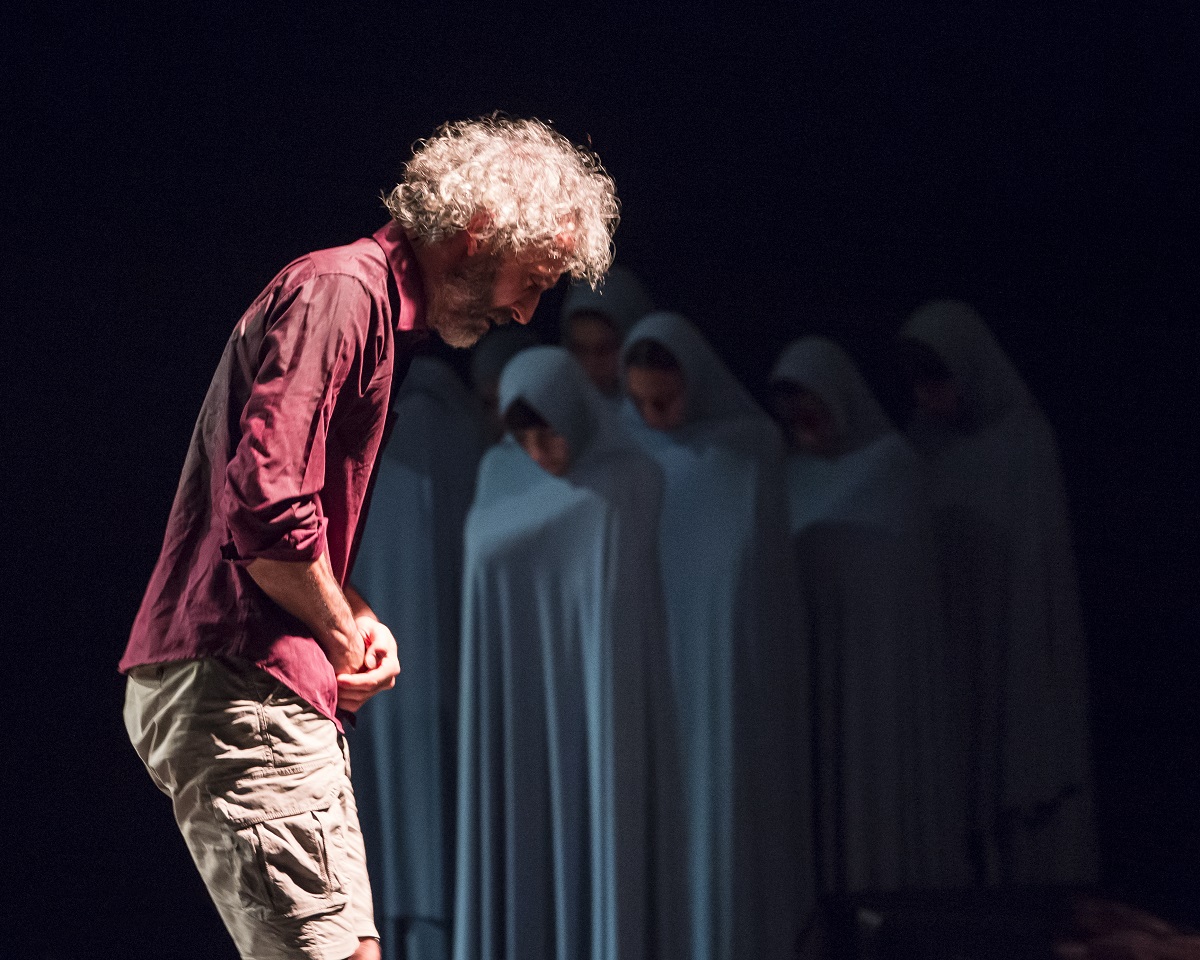
These are all words from a human encyclopedia that create short circuits of language and personality, opening visions that ultimately lead to a simple man named Salvatore, who on the phone, pausing again near the painting by Mantegna, asks for help from a plumber to a repair for a home breakdown (the breakdown of his mind?). Was it the conscious staging of a man pretending to be Christ, or was it a true multiple personality disorder, a madman who believes himself to be Christ? The density of quotations, pictorial and spiritual references are stratified in that carnal body that Zappalà lets live in freedom, marking moments of poetic visionary. Like the slow stripping of the performer before bathing under the purifying water, next to a woman with angel wings who collects her clothes placed neatly on her arms.
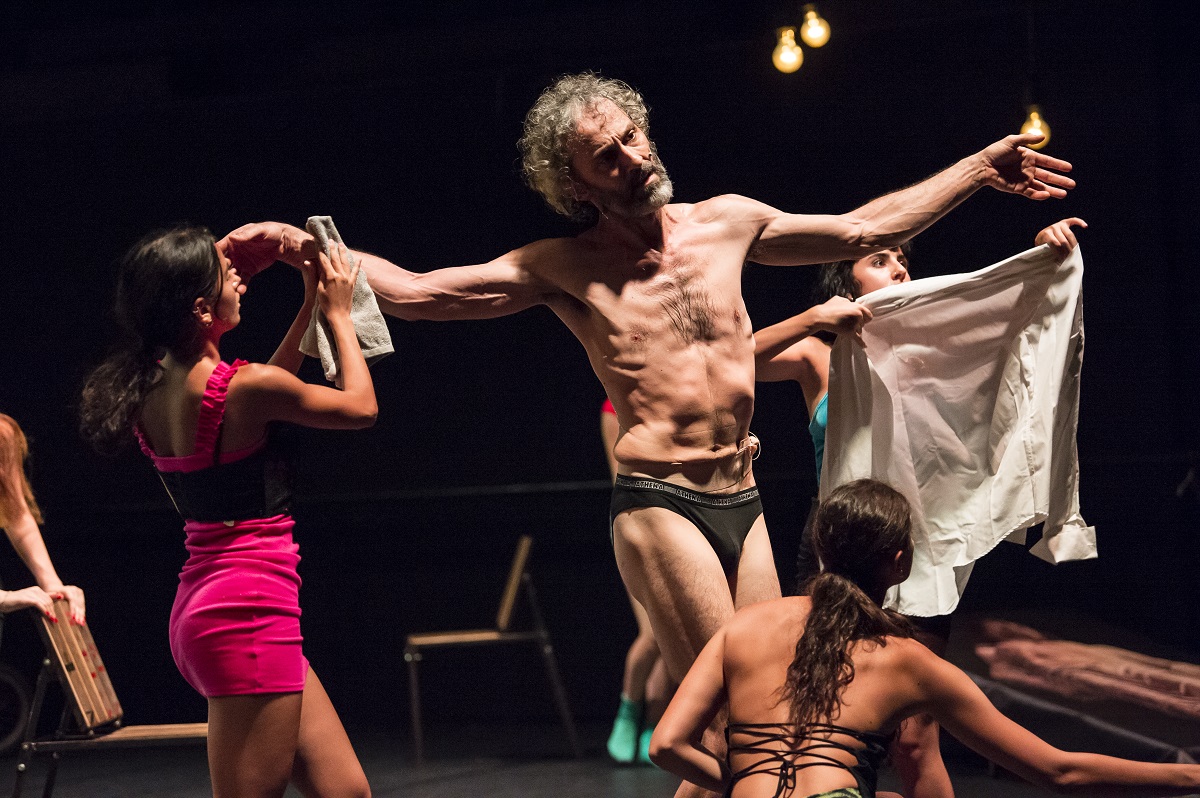
“Kristo – paintings of dubious wisdom”, by Roberto Zappalà
direction and body languages, sets, lights and costumes from Roberto Zappalà
texts by Nello Calabrò
interpreter and collaboration (double cast) Massimo Trombetta / Salvatore Romania
with the participation of women in tow
music by various authors
original music and sound carpet l’écume des jours
co-production Teatro Stabile di Catania and Public Scenario / Compagnia Zappalà Danza Center of Relevant National Interest, in collaboration with MILANoLTRE Festival. National premiere at the Elfo Puccini Theater for the MilanOltre festival, with apreview at the Municipal Theater of Casalmaggiore.
From 9 to 18 December 2022 al Stable Theater of Catania.
The man Kristo of Zappalà, or the body between fragility and certainty

